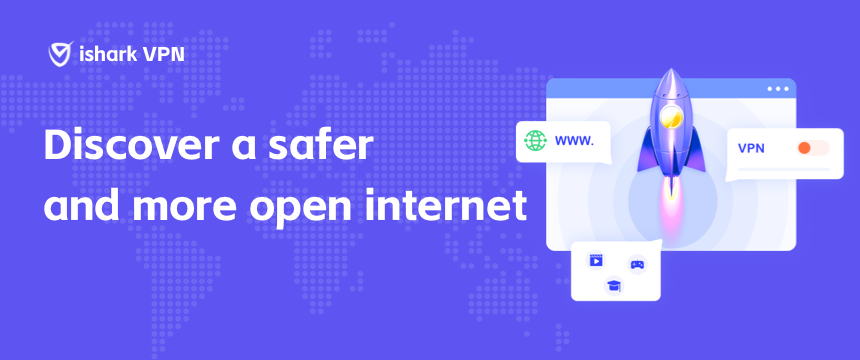The Diverse Functions and Applications of VPN
ishark blog article
Virtual Private Networks (VPN) serve as a versatile technological solution, playing a pivotal role not only in safeguarding user privacy but also in a range of diverse scenarios.
This article delves into the multifaceted functions of VPN, including privacy protection, circumventing geographical restrictions, data encryption, network security, cross-border access, remote work facilitation, data isolation, and online anonymity.
It further explores the advantages of utilizing VPN in different contexts.

1. Privacy Protection
As the internet becomes more pervasive, personal privacy faces an increasing number of threats. VPN establish encrypted connections, securing the transmission of user data and preventing third parties from intercepting or monitoring online activities.
Users can enjoy enhanced privacy protection when using public Wi-Fi networks, browsing the web, and engaging in online transactions.
2. Circumventing Geographical Restrictions
In certain regions, governments or service providers may impose limitations on access to specific websites or content.
VPN can simulate a user's presence in another location, thus bypassing these geographical constraints and enabling access to blocked websites, social media platforms, and restricted content.
3. Data Encryption
Data leaks and hacker attacks are prominent concerns in the digital era. VPN employ encryption techniques to safeguard user data, making sensitive information less susceptible to hacking attempts.
This is particularly crucial for online banking transactions, secure file transfers, and communications.
4. Network Security
Network security is a critical concern for both individuals and businesses. By utilizing VPN, users can thwart hackers and malware intrusion when connecting to insecure public Wi-Fi networks, ensuring the safety of devices and data.
5. Cross-Border Access
For individuals and companies requiring cross-border information access, VPN provide convenience.
Whether accessing international news, watching global live streams, or using online services specific to particular countries or regions, VPN facilitate circumventing geographical restrictions to obtain desired content.
6. Remote Work Facilitation
With the rise of remote work, VPN have become essential tools for ensuring the cybersecurity of remote employees.
By connecting to internal company networks, remote workers can securely access sensitive data, share files, and engage in online collaboration.
7. Data Isolation
In corporate settings, safeguarding sensitive data from unauthorized access is paramount. VPN can establish secure communication channels between different departments or office locations, ensuring the isolation and protection of sensitive data traffic.
8. Online Anonymity
As online personal information grows, many users are increasingly concerned about online anonymity.
VPN can conceal a user's true IP address, preventing personal online activities from being traced and monitored, thereby enhancing online privacy.

Conclusion
In the digital age, Virtual Private Networks (VPN) serve as a versatile technology, playing a significant role in various aspects of internet usage.
Beyond ensuring user privacy and data security, VPN offer numerous advantages, including circumventing geographical restrictions, enabling cross-border access, and facilitating remote work.
In diverse contexts, VPN create a safer and more convenient online environment for users.









